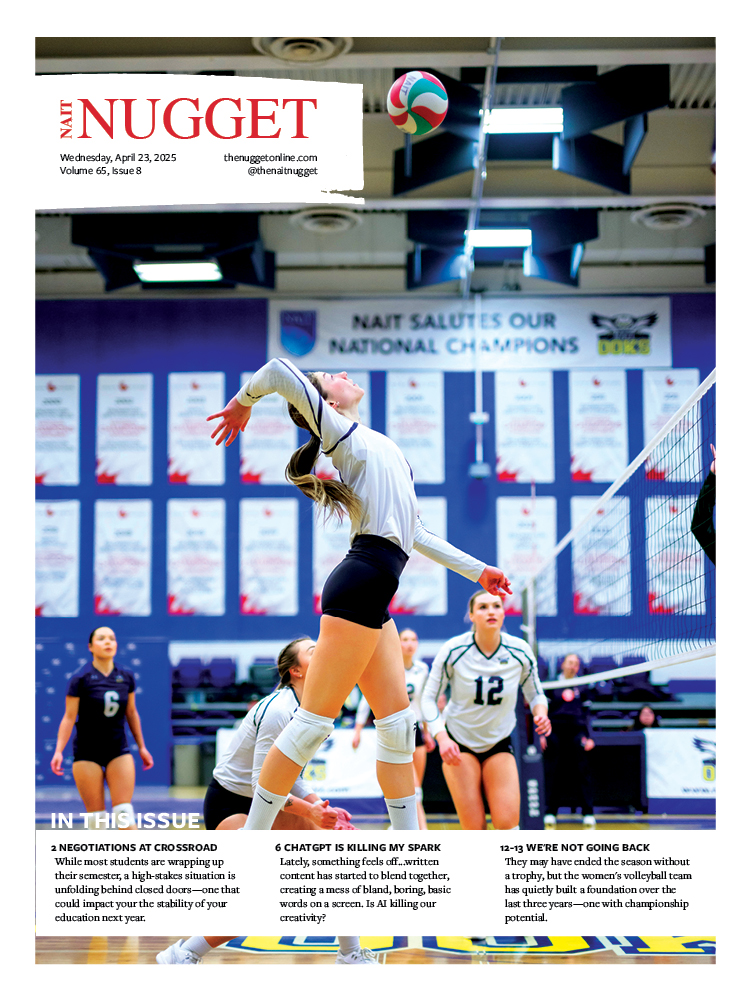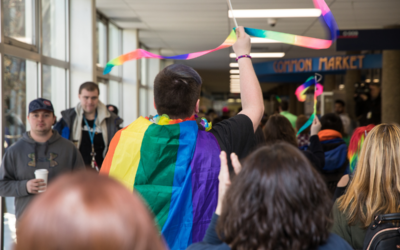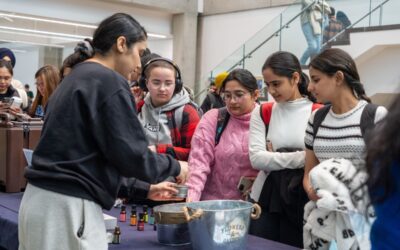I’ve been a passionate reader and writer ever since I was little. Reading other peoples’ experiences and writing about my own has always been a large part of my life. I was that kid who hid under the covers, reading novels with a flashlight until well after midnight. Then, I was that teenager who used Facebook as a personal blog, writing out my limited life experiences with way too much passion for a social media post five people would read. Now, I’m an adult working in student journalism, something most of my high school teachers would find unsurprising. I like reading stories, I like writing stories and I like helping others tell stories.
But lately, something feels off. It seems like lots of written content has started to blend together, creating a mess of bland, boring, basic words on a screen. There’s really no nice way to say this: it’s uninspiring slop.
Not to be dramatic, but it makes my soul shrivel up.
How many times do I have to “embark on a journey” to “delve into the complexities” of this “cultural tapestry” that’s “crucial to understand” in order to “harness the power” and “act as a catalyst for change” in this “fast-paced and ever-growing world” before I, “in conclusion,” “seamlessly integrate” myself into a “robust framework” of on-coming traffic?
As someone who graduated high school in the early 2010s, AI-written content in academia and journalism is still a new concept for me. When I started the business program at NAIT, ChatGPT didn’t even exist. All my written research, essays, copy and captions up until the last year or so of my education are mine, and mine alone. So, it’s frustrating when group members use ChatGPT improperly to lazily generate research and writing.
It often results in unintended plagiarism, incorrect citations, or no citations at all—just a vague spread of sentences that barely connect to theories we’re supposed to be learning from textbooks and peer-reviewed articles. I try to bite my tongue; I’ve heard the opinion that some people’s unacceptance of AI chat bots in 2025 is like other people’s unacceptance of calculators or the Internet. It’s a part of life now, and we should allow its use.
But lately, something feels off. It seems like lots of written content has started to blend together, creating a mess of bland, boring, basic words on a screen. There’s really no nice way to say this: it’s uninspiring slop.
Biting my tongue keeps the peace in group projects, but it stings in a creative environment. As a writer and editor, the paranoia of ChatGPT generated articles is always gnawing at me. When I recognize that robotic structure, I want to crawl out of my skin. The grammatically perfect, em-dashed paragraphs of algorithmic patterns make my eyes glaze over as I’m reading. Isn’t this piece supposed to be about your perspective? Are you really sharing your perspective if ChatGPT generated it for you?
Seeing students use this technology as a creativity-stifling crutch is infuriating, especially when it’s being used to generate written content that requires the perspective of a human being with empathy and lived experiences.
I don’t want to come off as a technology-hating millennial. Don’t get me wrong; AI writing tools like Grammarly can be extremely useful, and ChatGPT can be useful, too. But when you use it to generate entire paragraphs of writing instead of simply using it as an editing tool, you sound the exact same as every other student out there cheating their way through written assignments by getting ChatGPT to write them for you. Take it from someone who reads multiple student writing pieces a week: ChatGPT is killing your spark just as much as it’s killing my passion. Even as I’m writing this, I’m worried about sounding like a silly little chat bot. Unfortunately, I’m sure ChatGPT has already changed the way I write.
I know artists are frustrated with AI being used to replicate art —as they should be. But writing is also an art form that connects us. Not everyone is a skilled writer, and I believe AI can help bridge gaps for those who need it. Still, I want you to remember that your unique writing voice, despite grammatical and technical incorrectness, is special in this world. Grammar and technique can be easily fixed, but nothing can replace a writer’s tone and cadence. I’ve been able to make even the most grammatically incorrect pieces of writing shine through edits—but when a piece of writing lacks an original perspective and personality, that’s when things get tricky. I can’t write your story for you, and neither can ChatGPT.
Cover image by Darlynna Ting






